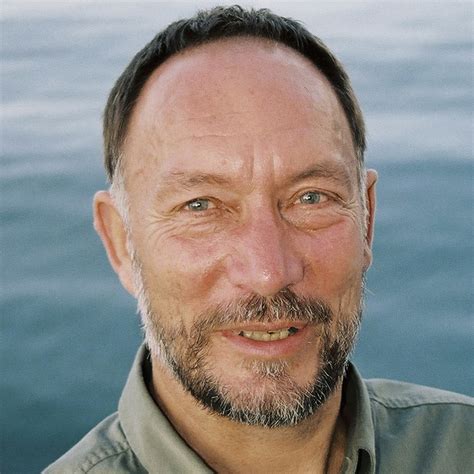A Quote by Erwin Schrodinger
Consciousness is never experienced in the plural, only in the singular. Not only has none of us ever experienced more than one consciousness, but there is also no trace of circumstantial evidence of this ever happening anywhere in the world. If I say that there cannot be more than one consciousness in the same mind, this seems a blunt tautology - we are quite unable to imagine the contrary...
Related Quotes
You are so accustomed to think of yourselves as bodies having consciousness that you just cannot imagine consciousness as having bodies. Once you realize that bodily existence is but a state of mind, a movement in consciousness, that the ocean of consciousness is infinite and eternal, and that, when in touch with consciousness, you are the witness only, you will be able to withdraw beyond consciousness altogether.
There exists a mountain of circumstantial evidence that consciousness survives bodily death. This is the kind of evidence that would stand up in a court of law. Some people believe that science needs better tools to quantify what consciousness is. Perhaps when we discover what consciousness is we will be on the road to providing absolute scientific evidence that there is life after death.
Feminism involves so much more than gender equality and it involves so much more than gender. Feminism must involve consciousness of capitalism (I mean the feminism that I relate to, and there are multiple feminisms, right). So it has to involve a consciousness of capitalism and racism and colonialism and post-colonialities, and ability and more genders than we can even imagine and more sexualities than we ever thought we could name.
The hermeneutic consciousness, which must be awakened and kept awake, recognized that in the age of science philosophy's claim of superiority has something chimerical and unreal about it. But though the will of man is more than ever intensifying its criticism of what has gone before to the point of becoming utopian or eschatological consciousness, the hermeneutic consciousness seeks to confront that will with something of the truth of remembrance: with what is still and ever again real.
Maybe each human being lives in a unique world, a private world different from those inhabited and experienced by all other humans. . . If reality differs from person to person, can we speak of reality singular, or shouldn't we really be talking about plural realities? And if there are plural realities, are some more true (more real) than others?
More than anything, rave was an intentionally designed experience. The music, lighting, and ambience were all fine-tuned to elicit and augment altered states of consciousness. The rhythm of the music was precisely 120 beats per minute, the frequency of the fetal heart rate, and the same beat believed to be used by South American shamans to bring their tribes into a trance state. Through dancing together, without prescribed movements, or even partners, rave dancers sought to reach group consciousness on a level they had never experienced before.
There can be no more intimate and elemental part of the individual than his or her own consciousness. At the deepest level, our consciousness is what we are - to the extent that if we are not sovereign over our own consciousness then we cannot in any meaningful sense be sovereign over anything else either.
I want to put it back together now, this artistic expression that contains religious feeling. I want to investigate: What was the origin? What's happened in the human mind? Can we trace back the moment of the creation of human consciousness? And why did only humans gain consciousness, not other animals? So, evolution? I don't know whether or not I can believe evolution. Maybe we wait for another 100,000 years and then apes get consciousness.
Since consciousness is the basis of all reality, any shift in consciousness changes every aspect of our reality. Reality is created by consciousness differentiating into cognition, moods, emotions, perceptions, behavior, speech, social interactions, environment, interaction with the forces of nature, and biology. As consciousness evolves, these different aspects of consciousness also change.
I consider morals and aesthetics one and the same, for they cover only one impulse, one drive inherent in our consciousness - to bring our life and all our actions into a satisfactory relationship with the events of the world as our consciousness wants it to be, in harmony with our life and according to the laws of consciousness itself.




































